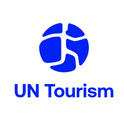UNWTO and Barça Innovation Hub Launch Global Sports Tourism Start-up Competition
The World Tourism Organization (UNWTO) in collaboration with Barça Innovation Hub (BIHUB) and with the support of the Qatar National Tourism Council (QNTC), has announced the launch of the 1st UNWTO Sports Tourism Start-up Competition. The initiative is designed to identify projects and innovations that can transform the sports tourism sector in the near future.
Increasing demand from tourists and the growing influence of sports on destinations' popularity have combined to make sports tourism one of the segments with the greatest potential for socioeconomic development opportunities, attracting growing levels of government interest. The 1st UNWTO Sports Tourism Start-up Competition, launched by UNWTO and BIHUB, with the support of QNTC, is looking for start-ups with disruptive ideas focused on solving real needs and addressing knowledge gaps in the growing sports tourism sector.
In all, 20 start-ups will be shortlisted by a panel of international experts and sports and tourism stakeholders, drawn from the public and private sectors, academia and civil society. The shortlisted start-ups will be announced on the competition's website. The panel will then select five semi-finalists who will all be invited to Barcelona to pitch their ideas to sports experts, government representatives, tourism business leaders and international investors.
"We are pleased to be partnering with the Barça Innovation Hub to harness the potential of sports tourism to stimulate creativity, innovation and sustainable growth. Through this competition, start-ups with disruptive visions can propose new ideas that will allow the sports tourism sector to contribute to the Sustainable Development Goals. We thank BIHUB for their vision and collaboration and, as we move towards the 2022 FIFA World Cup in Qatar, we thank the QNTC for their support for this exciting project," said UNWTO Secretary-General Zurab Pololikashvili as he opened the competition.
As part of the partnership with QNTC, the winning ideas will also be considered for implementation in Qatar, which is gearing up to host the FIFA World Cup 2022.
His Excellency Mr. Akbar Al Baker, Secretary General of QNTC, commented, "At QNTC we believe sporting events have a unique power to bring people of the world together, and that is also why sports tourism is a key focus area in our tourism vision. We look forward to seeing the innovative ideas that will come through the inaugural Sports Tourism Start-Up Competition and hope that one of them will come to life in Qatar."
Marta Plana, Director of BIHUB, added: "We are very pleased to work together with UNWTO to develop tourism in relation to the sports industry, a growing sector, and identify companies with the talents to help achieve this. Barcelona is a city linked to design and innovation, and a tourism hub. At BIHUB we want to make Barcelona the Silicon Valley of the sports industry and to use our experience as a tourist attraction, with the FC Barcelona museum the most visited in the Catalan region and more than 4 million people visiting our ground every year."
Full information on the terms and conditions are available at:
www.unwto-barcainnovationhub-challenge.org
About UN Tourism
The World Tourism Organization (UN Tourism) is the United Nations agency responsible for the promotion of responsible, sustainable and universally accessible tourism.
As the leading international organization in the field of tourism, UN Tourism promotes tourism as a driver of economic growth, inclusive development and environmental sustainability and offers leadership and support to the sector in advancing knowledge and tourism policies worldwide.
Our Priorities
Mainstreaming tourism in the global agenda: Advocating the value of tourism as a driver of socio-economic growth and development, its inclusion as a priority in national and international policies and the need to create a level playing field for the sector to develop and prosper.
Promoting sustainable tourism development: Supporting sustainable tourism policies and practices: policies which make optimal use of environmental resources, respect the socio-cultural authenticity of host communities and provide socio-economic benefits for all.
Fostering knowledge, education and capacity building: Supporting countries to assess and address their needs in education and training, as well as providing networks for knowledge creation and exchange.
Improving tourism competitiveness: Improving UN Tourism Members' competitiveness through knowledge creation and exchange, human resources development and the promotion of excellence in areas such as policy planning, statistics and market trends, sustainable tourism development, marketing and promotion, product development and risk and crisis management.
Advancing tourism's contribution to poverty reduction and development: Maximizing the contribution of tourism to poverty reduction and achieving the SDGs by making tourism work as a tool for development and promoting the inclusion of tourism in the development agenda.
Building partnerships: Engaging with the private sector, regional and local tourism organizations, academia and research institutions, civil society and the UN system to build a more sustainable, responsible and competitive tourism sector.
Our Structure
Members: An intergovernmental organization, UN Tourism has 160 Member States, 6 Associate Members, 2 Observers and over 500 Affiliate Members.
Organs: The General Assembly is the supreme organ of the Organization. The Executive Council take all measures, in consultation with the Secretary-General, for the implementation of the decisions and recommendations of the General Assembly and reports to the Assembly.
Secretariat: UN Tourism headquarters are based in Madrid, Spain. The Secretariat is led by the Secretary-General and organized into departments covering issues such as sustainability, education, tourism trends and marketing, sustainable development, statistics and the Tourism Satellite Account (TSA), destination management, ethics and risk and crisis management. The Technical Cooperation and Silk Road Department carries out development projects in over 100 countries worldwide, while the Regional Departments for Africa, the Americas, Asia and the Pacific, Europe and the Middle East serve as the link between UN Tourism and its 160 Member States. The Affiliate Members Department represents UN Tourism's 500 plus Affiliate members.
